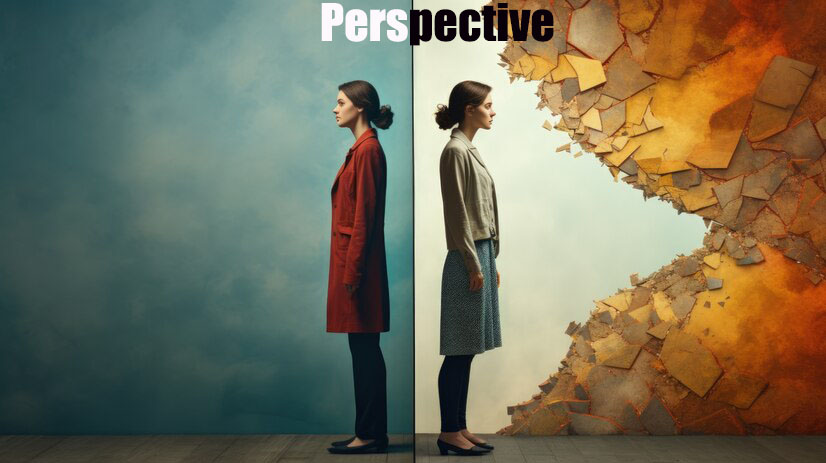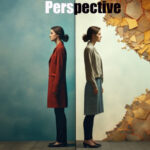Introduction to Perspective
Perspective, in its simplest form, refers to the way we see and interpret the world around us. It is shaped by our experiences, beliefs, and emotions, and it influences our thoughts, behaviors, and interactions. Understanding perspective is crucial because it affects how we perceive reality, make decisions, and relate to others. In this article, we’ll explore the concept of perspective, its various dimensions, and its impact on our lives.
The Psychological Basis of Perspective
Cognitive Processes and Perspective
Our perspective is rooted in cognitive processes, the mental actions or operations that include perception, memory, and reasoning. These processes help us interpret sensory information and make sense of our environment. Cognitive biases, which are systematic patterns of deviation from norm or rationality in judgment, can significantly influence our perspective, often leading us to see the world in a skewed or distorted way.
Emotional Influence on Perspective
Emotions play a pivotal role in shaping our perspective. For instance, a person feeling optimistic is likely to have a positive outlook on life, while someone who is anxious may perceive the same situations as threatening. Emotional states can color our perceptions and judgments, impacting our overall perspective.
Cultural and Social Influences on Perspective
Cultural Background
Our cultural background profoundly affects our perspective. Different cultures have unique values, traditions, and ways of thinking that shape how individuals view the world. For example, collectivist cultures prioritize group harmony and community, while individualist cultures emphasize personal autonomy and self-reliance.
Social Environment
The social environment, including family, friends, and societal norms, also influences our perspective. Social interactions and relationships provide a context in which our beliefs and attitudes are formed and reinforced. Peer pressure and societal expectations can sway our perspective, sometimes leading us to conform to group norms.
The Impact of Perspective on Daily Life
Decision Making
Our perspective directly impacts our decision-making process. How we evaluate options, weigh risks, and anticipate outcomes is influenced by our viewpoint. A broad perspective allows for more comprehensive and balanced decisions, while a narrow pers-pective may lead to biased or limited choices.
Conflict Resolution
Perspective-taking, or the ability to understand another person’s viewpoint, is essential in resolving conflicts. It fosters empathy and compassion, enabling individuals to navigate disagreements and find common ground. By considering different perspectives, we can address misunderstandings and build stronger, more cooperative relationships.
Perspective and Personal Growth
Developing Self-Awareness
Self-awareness involves recognizing our own pers-pective and understanding how it shapes our thoughts and behaviors. By reflecting on our beliefs and attitudes, we can identify biases and areas for growth. This self-awareness is a crucial step in personal development, allowing us to make conscious changes and improvements.
Expanding Perspective Through Experience
Exposure to diverse experiences and viewpoints can broaden our pers-pective. Traveling, reading, and engaging with people from different backgrounds can challenge our assumptions and expand our understanding of the world. This openness to new experiences fosters creativity, empathy, and resilience.
The Role of Perspective in Creativity and Innovation
Thinking Outside the Box
A flexible pers-pective is key to creativity and innovation. It enables us to see problems from multiple angles and devise novel solutions. By challenging conventional thinking and embracing diverse viewpoints, we can drive progress and innovation in various fields.
Collaborative Innovation
Collaboration thrives when team members bring different perspectives to the table. Diverse viewpoints encourage brainstorming, critical thinking, and the synthesis of new ideas. This collaborative approach leads to more robust and innovative outcomes, benefiting organizations and society as a whole.
Conclusion
Perspective is a powerful lens through which we view and interpret the world. It shapes our thoughts, behaviors, and interactions, influencing every aspect of our lives. By developing self-awareness, embracing diversity, and fostering empathy, we can broaden our pers-pective and enhance our personal and collective growth. Understanding and appreciating different perspectives is key to navigating the complexities of modern life, driving creativity and innovation, and building a more compassionate and interconnected world.
FAQs
What is the definition of perspective?
Pers-pective refers to the way we see and interpret the world around us, shaped by our experiences, beliefs, and emotions.
How do emotions influence pers–pective?
Emotions can color our perceptions and judgments, impacting our overall outlook on life. For example, optimism leads to a positive pers-pective, while anxiety can lead to a more negative view.
Why is pers-pective important in decision making?
Pers-pective influences how we evaluate options, weigh risks, and anticipate outcomes. A broad pers-pective allows for more comprehensive decisions, while a narrow pers-pective may lead to biased choices.
How can we expand our pers–pective?
Exposure to diverse experiences and viewpoints, such as traveling, reading, and engaging with different cultures, can broaden our pers-pective and challenge our assumptions.
What role does pers-pective play in creativity?
A flexible pers-pective enables creative thinking by allowing us to see problems from multiple angles and devise novel solutions. It encourages innovation and progress in various fields.











